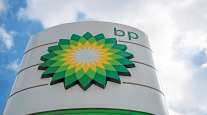BP Swaps High Returns for a Cleaner Future With Unproven Profits

[Stay on top of transportation news: Get TTNews in your inbox.]
One week and two deals later, BP Plc has cemented the view that for an oil and gas company to go green, it must sacrifice profits.
The energy major announced Feb. 8 that together with a German utility, it would pay $635 million annually for the next four years to develop two wind farms off the west coast of England. Just a week earlier, BP sold a stake in its giant, low-cost Khazzan natural gas field in Oman, which has double the returns.
“For the doubters, those that think BP is going to leave money on the table and destroy value, these recent deals are ammunition to that argument,” says Luke Parker, vice president of corporate research at Wood Mackenzie Ltd.
As European majors have promised to clean up their act and ramp up low-carbon energy, BP investors and analysts have questioned whether the firm is at risk of overpaying.
BP aims to cut its oil and gas production by 40%, increase low-carbon spending to $5 billion a year and produce 50 gigawatts of renewable energy by the end of the decade. The firm has said its trading unit, access to low-cost funding and experience in large projects will enhance returns from renewable power.
Khazzan, in which BP retains a 40% stake, will have high double-digit returns over the full life of the project, lower carbon intensity than many other oil and gas projects, and generates cash in low price environments. Conversely, the U.K. wind deal has high upfront costs, and lower and unproven returns of 8% to 10%.
BP has labored over the past year to convince analysts and investors that it can generate high returns while eliminating its emissions. “Deals that we’ve seen in the past two weeks suggest the model is tough,” said Parker.
Want more news? Listen to today's daily briefing below or go here for more info:




